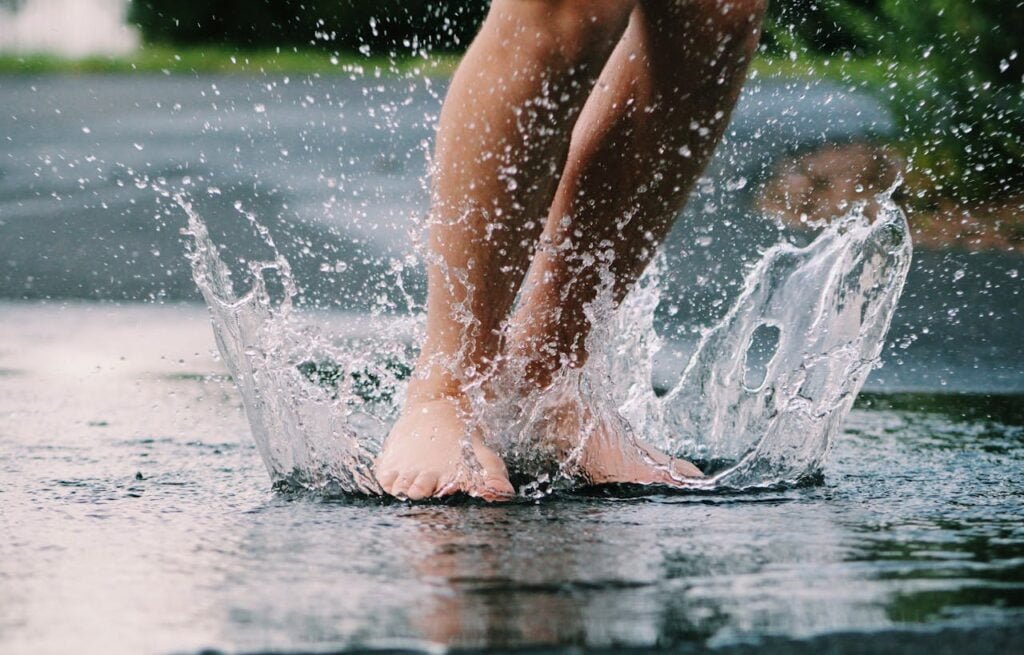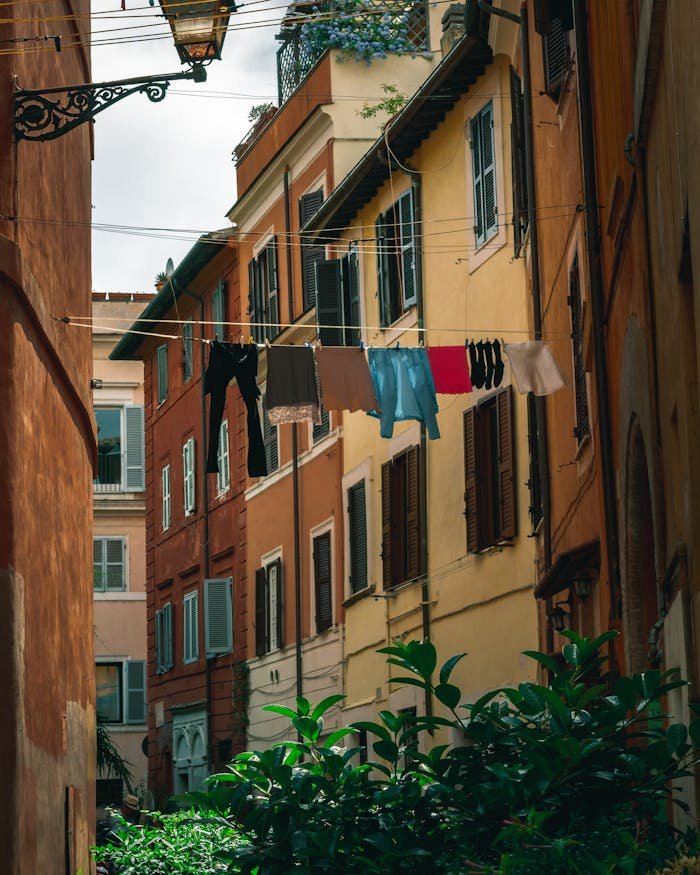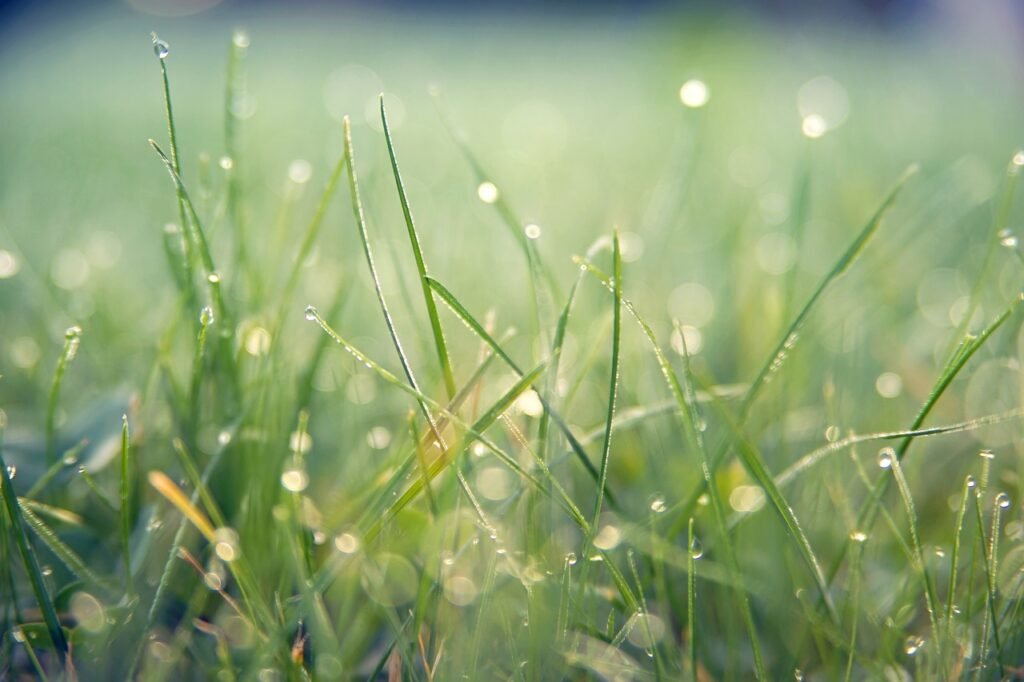wet
When something is wet, it’s full of water or there is water on the surface.
- The ground is wet after heavy rain.
- His forehead looks a little wet because of the sweat.
- My dog smells a little when she’s all wet.
The word “wet” is usually used as an adjective, but you can also use it as a verb. See the video below.

It’s wet outside today.
a. These examples show the word "wet" as an adjective:
- The streets are wet.
- I left my shoes outside last night and now they’re all wet. (Notice that the word “all” is often used with “wet” when there’s a lot of water.)
- This is all wet!
- When the weather is wet, you might spend more time indoors.
- These clothes are wet.
- The clothes on the clothesline are still a little wet. (In place of “a little wet,” you can also say “damp.”)
- The sand on the beach was wet because of all the rain
- There’s a wet sponge by the sink.
- You can hang your wet clothes on the rack.

- People hang their wet clothes on a clothes line.
- Wet clothes dry quickly when they are dried outside.
- My clothes were wet. Now, they’re dry.
b. This is what "wet" looks like as comparative and superlative adjectives:
- The wettest month of the year is usually June. (wettest = superlative adjective)
- Between June and July, June is wetter. (wetter = comparative adjective)
- It’s more wet in June than it is in July. (Some people choose to make the comparative form for “wet” with “more” instead on an “er” ending.)

- The grass is wetter in the early morning because of the dew.
c. These examples show the word "wet" as a verb:
- You should wet the soil a little before planting seeds.
- To wet the seal on an envelope, just lick it.
- They’re wetting their lips in anticipation of the pizza.
- She wet her hair before using the shampoo.
- The rain didn’t wet the pavement because of the trees hanging overhead.
- The little girl wet her bed last night. (To wet one’s bed is to accidentally release urine. It’s a common thing to happen to children.)
- She wet the bed. (She went to the bathroom on the bed.)
- The baby wet his diapers.
- Tom was so scared that he almost wet his pants. (This is kind of an expression. It means that a person was very excited, scared, or in some other heightened emotional state.)
d. There are different degrees or levels of wetness:
- When something is a little wet, it’s moist.
- When something is still wet, it’s damp.
- When water is found throughout an object, it’s saturated.
- When there’s too much water in a thing or a place, it’s soaked.
